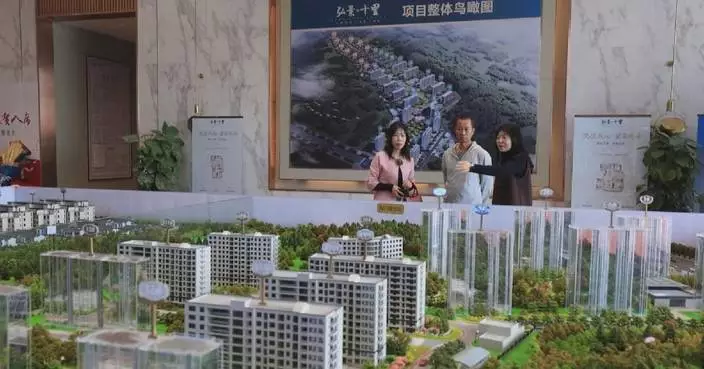The United Nations Population Fund's Asia-Pacific Regional Director Pio Smith has commended China's forward-looking policies on supporting the silver economy, saying that the policies, which integrate the public and private sectors, are holistic and being implemented in a comprehensive, equitable manner.
Smith made the statement in an interview with China Central Television on the sidelines of the Hongqiao International Economic Forum's sub-event themed "A Shared Silver Economy: New Opportunities in an Aging Society" in Shanghai on Wednesday. The Hongqiao forum was held during the 7th China International Import Expo (CIIE) running from Nov 5 to 10.
Smith highlighted the need to see and pay close attention to the population aging in the Asia-Pacific region that represents 60 percent of the global population.
"My take is that we need to put in place policies, strategies, societal approaches that recognize that shift in the demographics of the country. And we want to see solutions that are taking advantage of the full range of opportunities that technology brings, but it's also got its challenges. Who is thinking about these things? How do we enable an environment that allows for older persons to thrive and to feel welcome and to feel included?" he said.
Smith said the silver economy accounts for such a considerable part in the world economy which requires enterprises to take advantage of and fully invested in so as to offer solutions to the aging population and meet the demand of elderly people.
"Globally, it's worth around 15 trillion U.S. dollars per year. So, that is a massive section of the economy, I would say, taking advantage of and fully, properly invested in. So, what we want to do is to try and ensure that as businesses put together solutions that are geared towards elderly population, that they do it in a way that is consistent with the need of that diverse group of elder adults. We believe that when they do that, they will be able to not only generate products that add value to the life of elder adults, but they'll also be able to sustain their own profits. So, it'll be worthwhile for a business. And on top of that, then you have a social contribution," he said.
By the end of 2023, the population aged 60 and above had reached 297 million in China, 21.1 percent of the total. The number is expected to approach 500 million by 2050.
The Chinese government rolled out its first document arranging the development of the silver economy in January this year to embrace the opportunities and address the challenges brought by the aging population.
In the interview, Smith spoke highly of China's policies on the silver economy, calling them enlightening to some other countries.
"I'm really pleased and I commend the government of China for some of the very forward-looking policies that they put in place, particularly geared towards ensuring that the silver economy, the approach by the public, by the private sector is holistic, and that it's done in a very comprehensive, equitable manner. China has been really leading the way in terms of how we address these big, challenging issues around marrying the aging population with sustainable, equitable economic growth. I think they're showcasing a real opportunity for other emerging economies to look at the China model and see what best do we need, how do we put in place measures that would have us prepared for such policies. That's why UNFPA is so proud to work with china and continue our work around these issues," he said.
By the end of the 2070s, the number of people aged 65 and older around the world is expected to reach 2.2 billion, according to a report released by the United Nations.

UNFPA's regional director hails China's policies on silver economy









